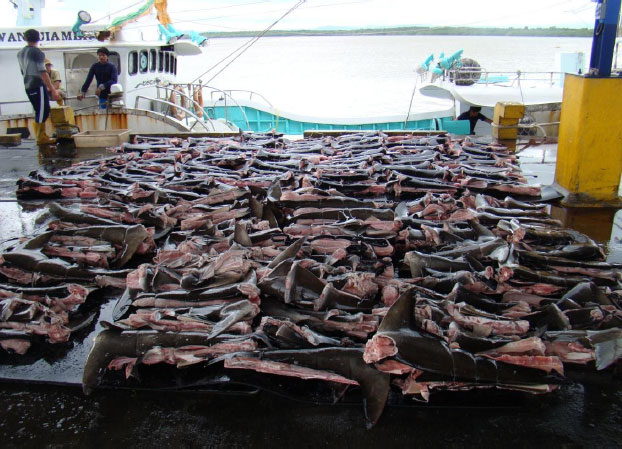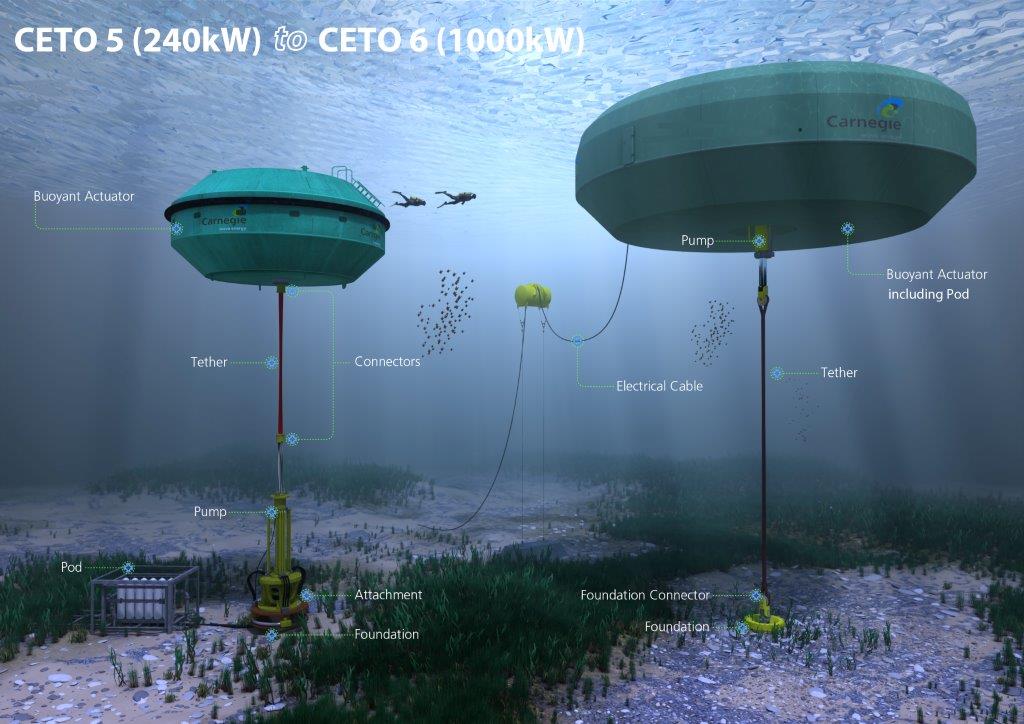1. Costa Rica
Blocks Shark Fin Exports

-----------------------------------------------
2. Arctic Sea
Ice Getting Thinner, Faster

Based off of data collected in a study published in The Cryosphere, ice is not only covering less of the planet but also getting thinner. Scientists compiled data from multiple sources to determine that the ice thickness has decreased 85 percent as of September 2014. Based off of the depth measurements from satellites and submarines, the Arctic basin has decreased 18 inches per decade since 2000. So the real question remains, when will there no longer be ice in the Arctic?. Read more...
-----------------------------------------------
3. Slurpee Waves Hit Nantucket

Take a look at these pictures that were taken on Nantucket, MA. Photographer, Jonathan Nimerfroh, captured a rare occurrence this week- frozen waves! The extremely cold winter weather in New England turned the waves into a slushy consistency. Read more...
-----------------------------------------------
4. Mexico Rolls Out Plan to Save Endangered Vaquita

-----------------------------------------------
 In past Week
in Review reports we discussed a source of wave power that was able to
withstand storm conditions. This week Carnegie Wave Energy, an Australian
company, has launched wave-generated electricity. The power, that is currently
powering the Australian Department of Defense’s naval base, is being generated
by three buoys. These buoys float at 25-50m below sea level and push pressurized
seawater through a pipeline and to an hydroelectric power station. Read more...
In past Week
in Review reports we discussed a source of wave power that was able to
withstand storm conditions. This week Carnegie Wave Energy, an Australian
company, has launched wave-generated electricity. The power, that is currently
powering the Australian Department of Defense’s naval base, is being generated
by three buoys. These buoys float at 25-50m below sea level and push pressurized
seawater through a pipeline and to an hydroelectric power station. Read more...
-----------------------------------------------
Climate
change has had a profound impact on many different species but, how have the
emperor penguins been affected? A study recently published in Global Change Biology examines the evolution
of the penguin populations through the last ice age. Scientists reviewed the
genetic diversity of modern and ancient populations of emperor penguins to see
how they changed over time. Year ago, the penguin population was seven times
smaller than it is today. One of the ancient
groups was isolated within the Ross Sea. It is believed that penguins were able to survive the ice age in a polynya in the Ross Sea. Read more...
-----------------------------------------------
7. Why Shark
Finning Bans Aren't Keeping Sharks Off The Plate (Yet)

-----------------------------------------------
As winter comes to a close, sea-turtle nesting season begins! The coastal towns of Florida have already developed some ordinances to protect the leatherback, green, and loggerhead sea turtles. From March until the end of October, no artificial lights will be allowed to be visible from the beach. The artificial lighting confuses the sea turtle hatchlings and they will not be able to find their way to the ocean. Read more...
-----------------------------------------------
9. Mass Fish
Deaths Off Singapore Coast Spark Concern
Fisherman in
Singapore have recently been shocked with the massive deaths of fish,
invertebrates, sea horses, eels, and many more marine species. It is believed
that these deaths are a result of plankton bloom. This affect could have been a
result of drastic temperature changes, nutrient levels in the water, or poor
water circulation. Read more...
-----------------------------------------------
 Have you ever
walked on the beach, found a shell and wondered how it was formed? The
scientists at MIT and Lawrence Berkeley National Laboratory have reviewed the
atomic process. This study explains the science behind the formation of two types of calcium carbonate- calcite and aragonite. Read more...
Have you ever
walked on the beach, found a shell and wondered how it was formed? The
scientists at MIT and Lawrence Berkeley National Laboratory have reviewed the
atomic process. This study explains the science behind the formation of two types of calcium carbonate- calcite and aragonite. Read more...
-----------------------------------------------
Be sure to "LIKE" http://facebook.com/SeaSave to ensure our "Week in Review" is delivered to your newsfeed every Thursday.
Sea Save Foundation is committed to raising awareness of marine conservation. The Week in Review is a team effort produced by the Sea Save staff to provide a weekly summary of the latest in marine research, policy, and news.


